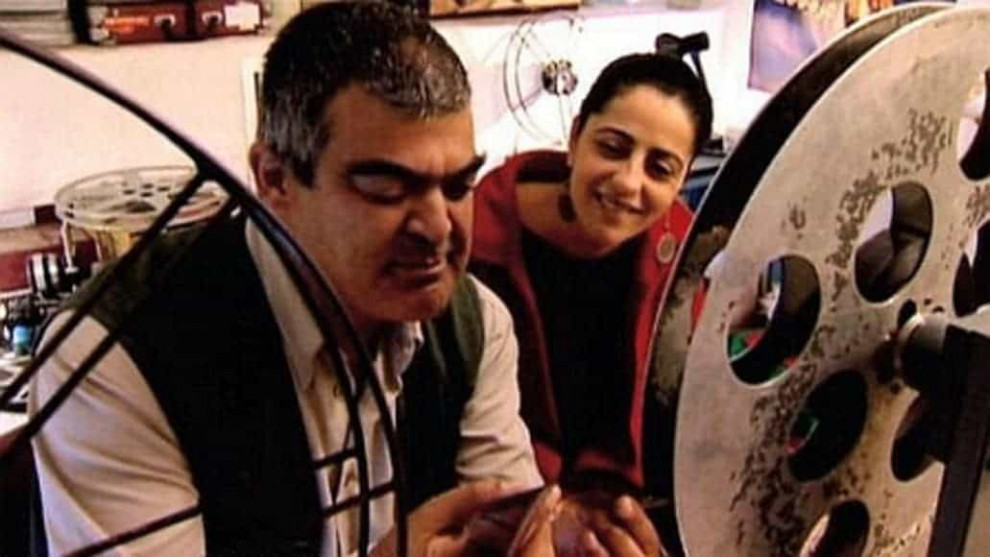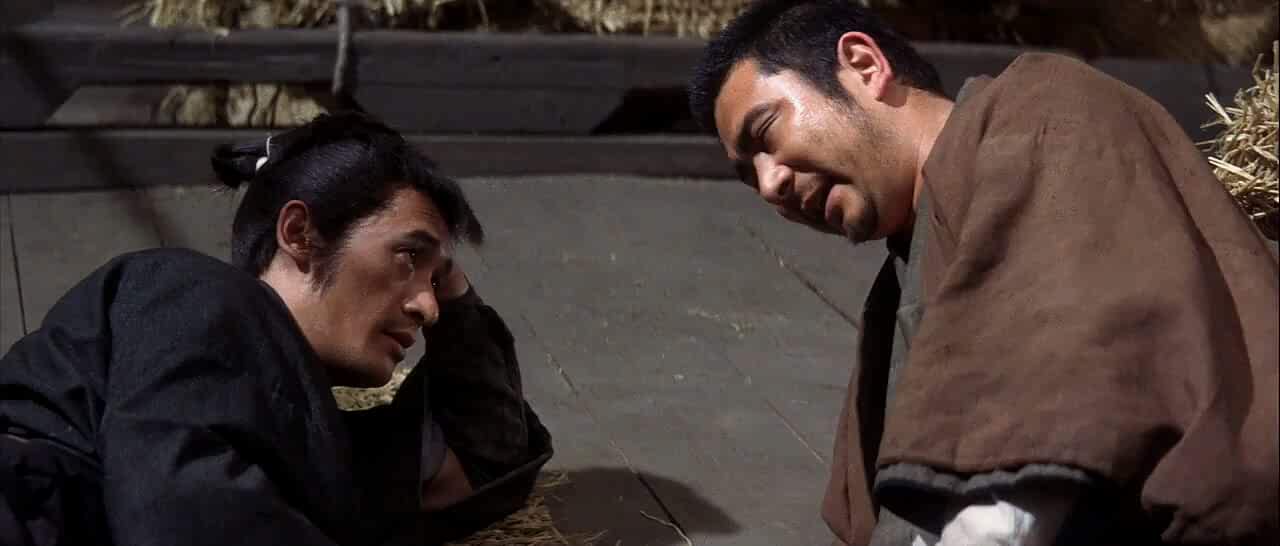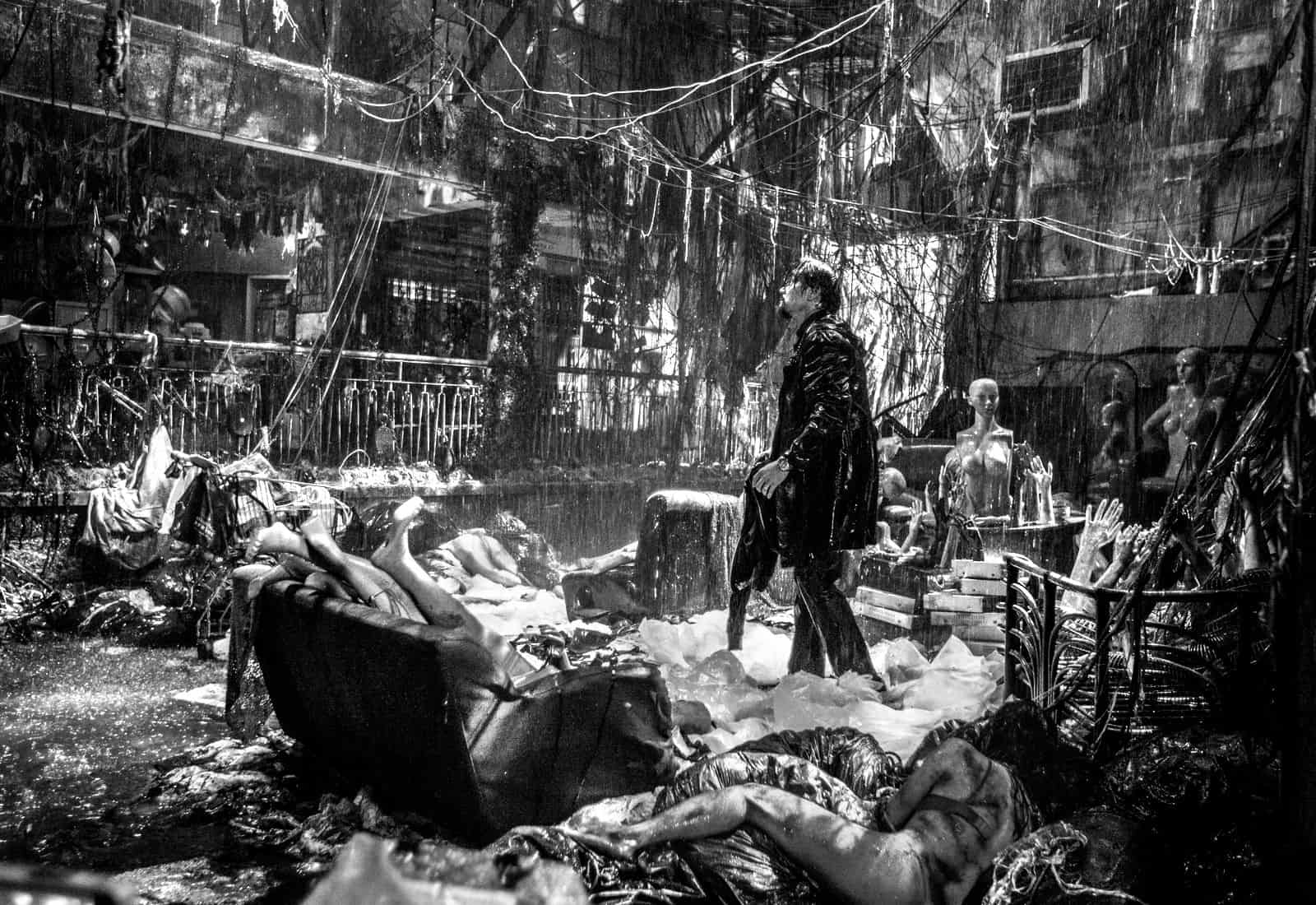“Don't complicate what's already too complicated.”
For his fourth feature film, Palestinian director Rashid Masharawi chose a topic which walks a very thin line between fact and fiction. Fittingly, he has called “Ticket to Jeruslam” repeatedly a “documentary fiction” that touches upon the topic of everyday life in Palestine, the conflicts in the settlements as well as the role of a cinema itself in an environment such as this.
Watch This Title

In the film Gassan Abbas plays Jabir, a fim projectionist driving around the West Bank and all over Palestine to screen movies, mostly cartoons for children. However, at home, he uses the equipment to screen footage of police controls as well as the conflicts in his region, which has caused many arguments between him and his wife Sana (Areen Omari). During her job as a paramedic, she feels she already has seen her fair share of cruelty and does not understand her husband's motivation to screen movies and drive around with his old, rusted equipment for very little money.
Despite these arguments, Jabir has remained loyal to his job, especially as he enjoys bringing people happiness with his movies. After a screening at a school, a female teacher from Jerusalem asks him to stage on at her school or close by for the children. Since the army controls every major checkpoint and access to the city is not granted, Jabir's task is incredibly difficult. Additionally, the enterprise causes him to think deeply about his own role and responsibility for the conflicts around him.
On his way to one of the screenings, Jabir's jeep comes to a sudden, but not unexpected halt in front of a checkpoint, in front of which already many other cars and people have lined up, waiting to get through. Because he is too late, Jabir decides to take another, less frequented route through dusty, rocky roads which brings his rusty jeep to its limits. As he approaches a small house, a man runs towards him begging him to turn around since the road is much too dangerous. Upon hearing this, Jabir wants to screen a movie in one of the refugee camps, he becomes even more agitated. “The people of the camp are looking for work, for food and you want to show them films?” Realizing there is no point in arguing, Jabir drives back to look for another route.

There are many encounters, some of them part of the fictional framework of the film, others not, such as the one described in the paragraph before. While the differences between fact and fiction blur within “Ticket to Jerusalem”, a viewer will likely find oneself silently asking the same questions as Sana, watching her husband seemingly following an absurd and pointless task. In the face of the conflict, the everyday routine of checkpoints and not being able to access parts of the country, the obvious obstacles within the infrastructure as well as the tension between Israelis and Palestinians, Jabir's enthusiasm is touching but somewhat naive. Or at least it seems that way on the surface.
In general, you can define “Ticket to Jerusalem” as a story which has more in common with works such as Giuseppe Tornatore's “Cinema Paradiso” as it focuses on the community aspect of cinema. At the same time, the scenes showing the actual screenings portray a kind of harmony and joy rarely seen in the images of absurd chaos and restriction, for example, in front of the checkpoints. The character of Jabir may be in many ways a mirror image of Rashid Masharawi himself, for he understands his job, follows it with unswerving passion and – as the people around him – embodies many creative ways to make sure he can screen movies for others. The image holds a truth far beyond the mere surface or the emotions it appeals to, it is a necessary means to understand, to question and to survive something which words cannot express anymore.

Technically, Masharawi's direction along with Baudoin Koenig's images embrace the often improvised quality of the world around them, much like their characters. Many times the camera searches for a much needed distance to the portrayed events; for example, when it shows the row of cars parking outside a checkpoint because they are not allowed to pass. Even though a certain amount of chaos has become an essential part of everyday life, characters like Sana and Jabir have managed to create ways to come to terms with reality. The difference is that people like Jabir also search for the binding force which is the joint experience of watching a movie, a type of reassurance that in between this reality there is room for other aspects, also necessary to get by.
“Ticket to Jerusalem” is a film about the necessity of cinema, while it also deals with questions of identity and home. It is a story which blurs the line between what is fiction and what is reality in order to show the lives of two characters driven by a sense to bring order, happiness or a sense of purpose into the chaos and the conflict around them.

Sources:
https://www.trigon-film.org/de/movies/Ticket_to_Jerusalem, last accessed on: 03/07/2019















